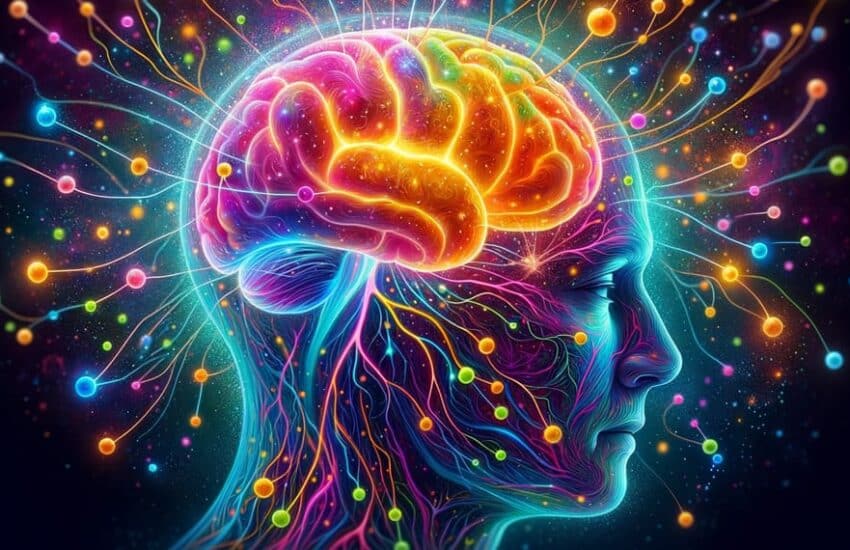According to the Journal of Front Psychiatry, LSD For Depression is shown to be a potentially useful therapeutic substance; the strongest evidence for this usage has been found in the treatment of alcoholism (Source). Even if it is challenging to plan double-blind clinical trials with this drug, new research conducted by contemporary guidelines is required to further our understanding, lessen the stigma that still surrounds these drugs, and pave the way for new developments.
Microdosing LSD, or small amounts of the drug, has many health advantages, such as enhanced mood, pain relief, and cognitive function. Nevertheless, these assertions are not well supported by scientific data, and there have been few investigations into LSD microdosing. I’ll compare LSD for depression with SSRI and see which one is better in what terms.
The way that SSRIs (selective serotonin reuptake inhibitors) treat depression is by raising serotonin levels in the brain. They achieve this by preventing serotonin from being reabsorbed into presynaptic neurons.
Also, read How to Make Magic Mushroom Tea? Step By Step Guide.
Scientific Background Of LSD Microdosing
As Per Medicinal News Today, microdosing LSD entails the ingestion of small, non-psychedelic doses that do not induce intoxication or significantly alter consciousness (Source). Typically, individuals incorporate these modest psychedelic doses into their routine at regular intervals, such as every set number of hours or days over an extended period. The dosage for microdosing is not standardized, but it commonly falls within the range of one-tenth to one-twentieth of a recreational dose.
In a 2019 study that conducted an online survey on people’s experiences with microdosing, the prevalent dose reported was 10 micrograms (mcg) (Source).
As outlined in a 2019 review, individuals who engage in microdosing psychedelics, including LSD, typically adhere to one of three microdosing schedules:
- Taking microdoses for two consecutive days followed by two consecutive days of non-dosing.
- Taking microdoses from Monday through Friday and abstaining on the weekends.
- Taking microdoses every other day.
The review also revealed that most individuals practiced microdosing for periods ranging from 1 week to 2 years. Additionally, approximately half of the participants devised their microdosing protocols, as indicated in the review’s findings. Now, let’s talk about SSRI’s
Scientific Background Of SSRI
The most often prescribed antidepressants are called selective serotonin reuptake inhibitors, or SSRIs. According to the Mayo Clinic, They are generally safer than other types of antidepressants, have fewer side effects, and help lessen the symptoms of mild to severe depression. (Source)
Although there was a considerable risk of bias in all the trials and the clinical importance seems dubious, SSRIs may have a statistically meaningful impact on depression symptoms. The chance of both major and non-serious side effects is greatly increased by SSRIs. It appears that the negative consequences outweigh any possible minor positive ones. Therefore, I’ll recommend LSD because it has fewer side effects and there are more clinical trials that support its superiority over SSRIs.
LSD Vs SSRI’s For Depression
|
Characteristic |
LSD |
SSRI |
|
Drug class
|
Psychedelic |
Antidepressant |
|
Mechanism of action
|
Partial agonist at the 5-HT2A serotonin receptor
|
Blocks the reuptake of serotonin into presynaptic neurons |
|
Onset of action
|
30-60 minutes
|
1-2 weeks |
|
Duration of effects
|
6-12 hours
|
4-6 weeks |
|
Typical effects
|
Enhance cognitive processes and abilities, Increase energy levels, Improve emotional balance and mood, Reduce anxiety, Help treat depression, Help treat addiction, Help reduce pain, Improve migraine and cluster headaches, Enhance senses, Reduce sensitivity to trauma
|
Improved mood, reduced anxiety and depression |
|
Common side effects
|
Hallucinations, nausea, and vomiting
|
Nausea, vomiting, headache, insomnia, diarrhea |
|
Risk Of Addiction
|
Low
|
Low
|
Comparing LSD With SSRI’s For Depression
- LSD microdosing is a psychedelic drug that produces reduced depression, anxiety, and stress, improves mood and cognition, and treats mental health disorders and addiction (Source), while SSRIs are antidepressants that improve mood and reduce anxiety and depression.
- LSD microdosing has a rapid onset of action, while SSRIs take several weeks to start working.
- The effects of LSD typically last 6–12 hours, while the effects of SSRIs last several weeks.
- Common side effects of LSD include hallucinations, nausea, and vomiting. Common side effects of SSRIs include nausea, vomiting, headaches, insomnia, and diarrhea.
- LSD has a low risk of addiction, while SSRIs have a very low risk of addiction.
- LSD microdosing has the potential for abuse if taken excessively, while SSRIs do not.
The Bottom Lines
SSRIs and LSD are two very different pharmacological classes with distinct effects, side effects, and modes of action. While SSRIs are antidepressants that are used to treat depression, anxiety, and other mental health disorders, LSD is a psychedelic substance that provides the same benefits and is usually used to treat depression and addictions. There you have it!

